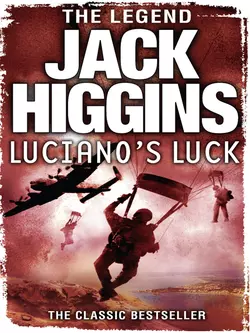Luciano’s Luck

Jack Higgins
Тип: электронная книга
Жанр: Современная зарубежная литература
Язык: на английском языке
Стоимость: 775.19 ₽
Статус: В продаже
Издательство: HarperCollins
Дата публикации: 16.04.2024
Отзывы: Пока нет Добавить отзыв
О книге: The brilliant suspense thriller from the author of THE EAGLE HAS LANDED, set in the wartime battlegrounds of the Mediterranean.A brilliant suspense thriller from the wartime battlegrounds of the Mediterranean.In the historic summer offensive of 1943, the Allies stand ready to invade Sicily. The cost will be high in lives and time, unless the Sicilians themselves can be persuaded to rise against their Nazi oppressors.Only the Mafia can command an uprising – and the Godfather refuses to fight…Desperate action is needed to dent Hitler′s evil pride. Someone who understands Mafia ways, and knows how to earn the loyalty the Allies crave. Someone who isn′t afraid of killing his own…